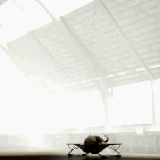11 billion pieces of plastic bringing disease from Thailand to Great Barrier Reef

By
webfact
in World News
-
Recently Browsing 0 members
- No registered users viewing this page.
Announcements
-
-
Topics
-
Popular Now
.png.3b3332cc2256ad0edbc2fe9404feeef0.png)





Recommended Posts
Create an account or sign in to comment
You need to be a member in order to leave a comment
Create an account
Sign up for a new account in our community. It's easy!
Register a new accountSign in
Already have an account? Sign in here.
Sign In Now